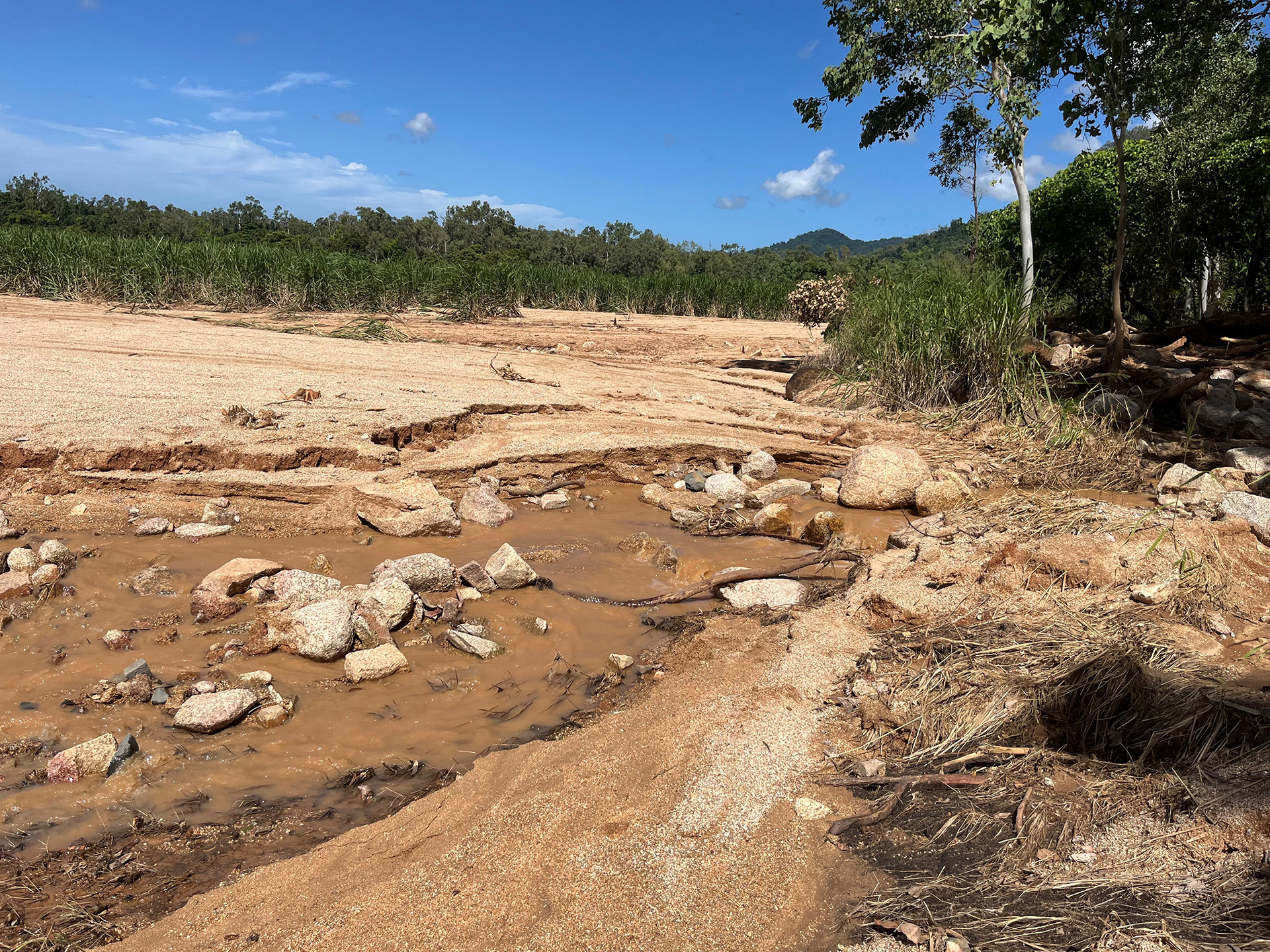
3 minute read
CANEGROWERS wins replanting assistance, but mor disaster aid reforms needed
Primary producers impacted by last month’s devastating floods across North Queensland can now use disaster recovery grants to help cover the cost of replanting lost crops.
It’s the first time replanting costs have been included in disaster recovery funding and comes after weeks of pressure from CANEGROWERS, working in partnership with the Queensland’ Farmers Federation and other commodity groups.
CANEGROWERS CEO Dan Galligan welcomed the decision, saying the policy change, which brings Queensland in line with other states and will apply to all future natural disasters, was an important piece of the puzzle.
“Replanting is an essential part of recovery and we’re grateful that the Crisafulli Government has recognised that and taken steps to assist growers with getting back on their feet,” Mr Galligan said. However, infrastructure damage, workforce retention, and fairer eligibility criteria for assistance remain serious challenges, he said.
One major issue is the restrictive definition of a primary producer, which excludes many modern farms that rely on off-farm income.
“Growers shouldn’t be penalised for diversifying their income,” Mr Galligan said. “Disaster relief needs to reflect the realities of today’s farming businesses, which often requires growers to work off-farm to make ends meet.”
The floods also exposed ongoing vulnerabilities in transport, power, and telecommunications - weak points that slow recovery efforts and add to economic losses.
CANEGROWERS Chairman Owen Menkens called for urgent investment in more resilient infrastructure.
“Every disaster highlights the same failures. We need proactive solutions, not just reactive fixes,” he said.
“CANEGROWERS is pushing for a more coordinated recovery approach, including industry-based rural recovery officers who can be deployed quickly to assist affected growers.
“Having dedicated recovery specialists embedded in the industry would make the response more efficient and effective.”
Labour shortages have been another challenge, delaying essential repairs and replanting.
In December, CANEGROWERS successfully secured an extension to the disaster recovery grant deadline for growers impacted by Cyclone Jasper, recognising the difficulty of finding contractors and supplies in a tight timeframe.
While acknowledging the government’s efforts, Mr Galligan warned that unpredictable policy changes during crises add unnecessary stress to growers.
“Disaster relief arrangements must be clear, consistent, and pre-determined rather than adjusted under political pressure,” he said.
“As the industry works through yet another disaster recovery, CANEGROWERS remains focused on securing long-term improvements to disaster response policies.
“We’ll keep pushing for reforms to ensure growers get the support they need to recover and rebuild. Natural disasters aren’t going away, so our policies must evolve.”
As this issue of Australian Canegrower went to print, the government was expected to announce an increase in the disaster funding threshold from $25,000 to $75,000 in line with the support offered following Cyclone Jasper.
“CANEGROWERS has been engaged in ongoing discussions with the state and federal governments about increasing the assistance threshold,” Mr Galligan said.
“Reports from on the ground are clear – $25,000 doesn’t go nearly as far as it used to, and won’t be nearly enough for help the worst impacted growers get back on their feet.
“We’ve explained this clearly to the government and backed it up with evidence. Thankfully, all indications are that they have listened and will likely announce an increase in the funding threshold in coming days.
All affected growers should:
Not self-assess
Gather evidence and quotes
Visit QRIDA website www.qrida.qld.gov.au/primary-producers to lodge an application
Contact your local CANEGROWERS office for assistance and support





